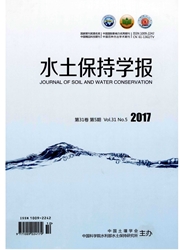

 中文摘要:
中文摘要:
从潮土、水稻土、砂姜黑土和石灰土等土壤的植物根际土壤和根中分离了86株磷细菌,通过液体摇瓶培养3d,培养液水溶磷含量为4.2~387.3mg/L,水溶磷含量与培养液pH呈显著负相关(R2=0.621 6)。用筛选出的1株磷细菌(HCW115)进行玉米盆栽试验,结果表明,磷细菌处理的玉米干物重和吸磷量与对照相比分别增加了37.5%和40.2%,达到显著差异。磷细菌对土壤Al-P、Fe-P和O-P转化无明显影响,但可以促进土壤Ca2-P、Ca8-P和Ca10-P向有效磷转化而被玉米吸收,与原土相比,Ca2-P、Ca8-P和Ca10-P含量分别减少了74.9%,12.3%和1.51%。
 英文摘要:
英文摘要:
There were 86 strains of phosphate-solubilizing bacteria PSB isolated from the plant rhizosphere soil and plant root in paddy soil,meadow soil,black clay soil and lime soil.After 3-day incubation in a liquid medium,the soluble P in the cultures of strains was 4.2~387.3 mg/L,and there was significant negative correlation between pH and the soluble P in the cultures of strains(R2=0.621 6).One strain of PSB(HCW115) was used in pot experiment and result showed that the dry weight and phosphorus uptake of the PSB treatment corn seedling were respectively increased by 37.5% and 40.2%,compared with control,the difference was significant.The PSB had no effects on transformation of Al-P,Fe-P and O-P of the soil.The PSB promoted the transformation of insoluble calcium phosphate in soil to available phosphorus and the content of Ca2-P,Ca8-P,Ca10-P of PSB treatment soil were respectively reduced by 74.9%,12.3% and 1.51% compared with the original soil.
 同期刊论文项目
同期刊论文项目
 同项目期刊论文
同项目期刊论文
 期刊信息
期刊信息
